Hagay Ben Yehuda, his wife and three children live right next to his bakery, Hagay ve’ha lehem (Hagay and his bread), on Kibbutz Einat. As the mill is grinding wheat, his 1.5 year old daughter, Abigail, walks barefoot through the door, peeks into the bag at the end of a chute where the bran is collecting and starts to playfully sift it with her hands. It’s a tableaux that has not changed in six generations of this family of bakers.
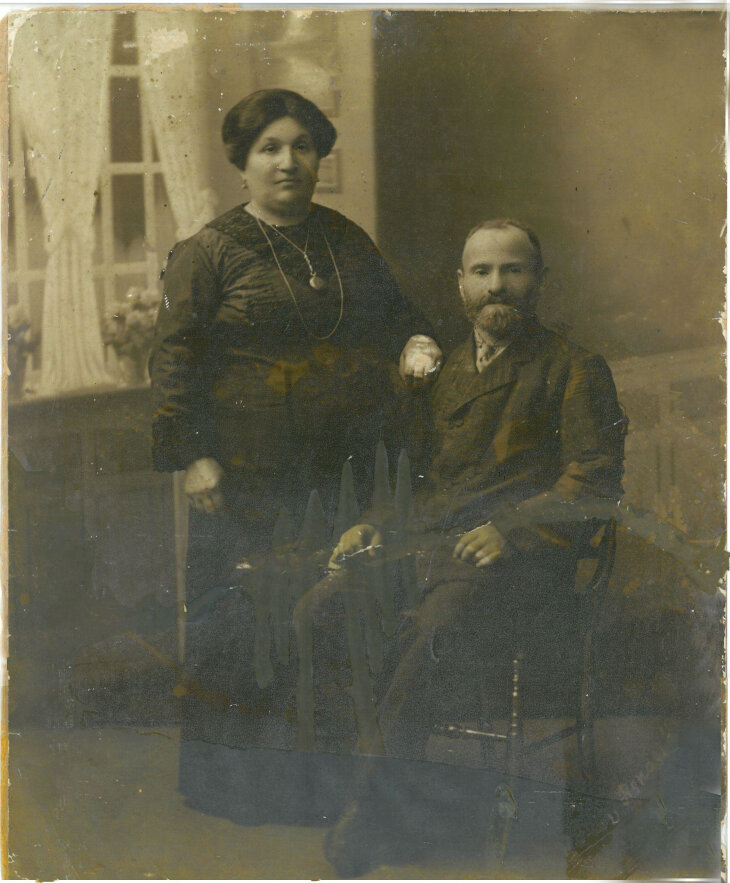 Miriam and Moshe Rosenthal
Miriam and Moshe Rosenthal
Ben Yehuda points to a black and white photograph on the wall of his great-great grandparents, Miriam and Moshe Rosenthal. “They arrived in the 1890s and set up a bakery in the small town of Petach Tikva. Moshe’s experience as a baker started out in his shtetl in Poland. This was considered a good job for a boy from a poor family as you always had something to eat and could sleep at night in the warmth of the bakery.”
From Poland, Moshe decided to go and try his luck in America, Ben Yehuda relates, but after arriving found few opportunities. He then left for South Africa where he succeeded in setting up a stall selling bread and bagels and saved enough money to again try and live in America, but this was not to be. The ship he sailed on took him via Palestine, where a man he befriended invited him to spend Shabbat in Petach Tikva. Moshe fell in love with the moshava as there were many Yiddish speakers and the synagogue reminded him of his hometown shtetl. Soon after, he opened Rosenthal bakery, adjoining the family home.
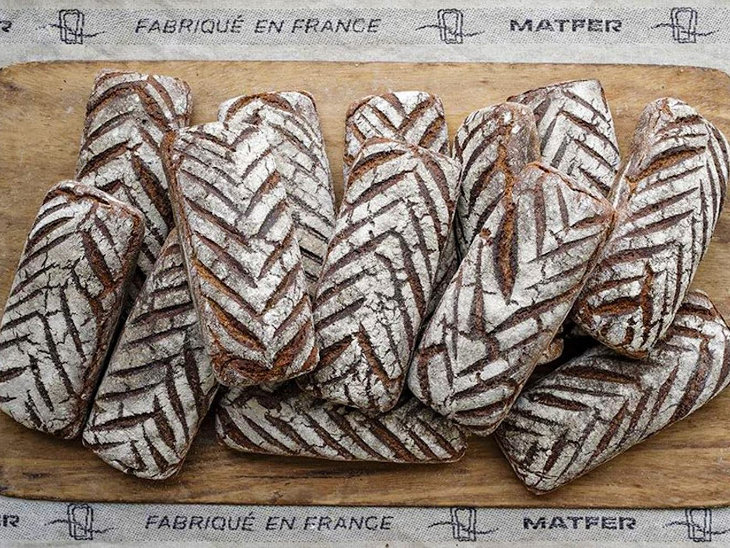
Rosenthal bakery (later named Tikotzki bakery) was known for its rye bread made in a wood-fired oven and with a signature indentation in the middle. They also baked challah with no eggs or butter. “Only on Rosh Hashanah would they add eggs to make it fluffier and richer,” says the 36 year old baker.
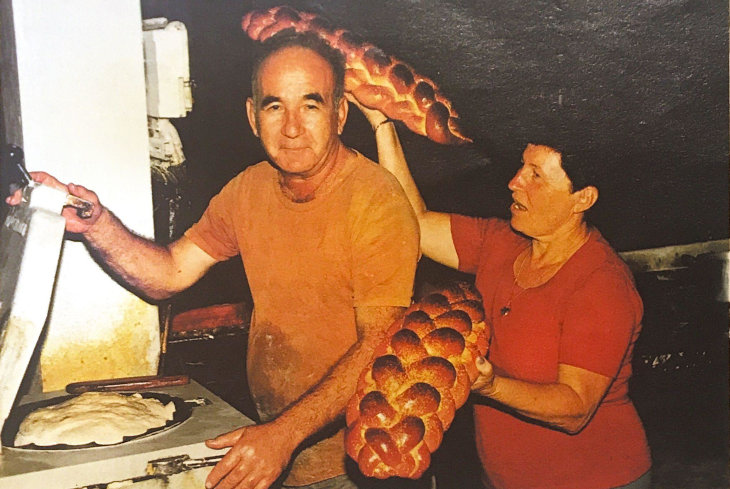 Hana and Zecharia Tikotski
Hana and Zecharia Tikotski
Ben Yehuda, whose father is today Vice-President of the large commercial Angel bakery, has many memories of the business in Petach Tikva. “All the history of my family is tied up with that bakery until it closed when I was nine and my grandfather was 71 years old. He was tired and a bit resentful of the hard professional life, always getting up at 3 am to take the Willys’ pickup truck and do deliveries to the makolets (neighborhood grocery stores) they supplied. It was physical work and he always moaned that his parents had brought five sons into the world only so that they could work in the bakery.”
For Ben Yehuda, the idea of baking bread and running a bakery, couldn’t be more different. “It’s a craft you fall in love with. I create it and touch it and the process is exciting.” His first job after the army was at Lachmanina (the Tel Aviv artisanal bakery known for its Nelson seed bread – named after Nelson Mandela). After a time his girlfriend, Noa (now his wife) encouraged him to go and do an apprenticeship at a traditional bakery, Le Moulin de la Vierge (the virgin bakery) in Paris. But Ben Yehuda did not find the mentoring he was looking for and returned to Israel after a few months. Still set on his dream of bread baking as a profession, he was inspired to build a small wood fire oven in his parents backyard and started to bake “loyal to traditional methods.”
In practice this meant mixing the ingredients by hand, using only natural leaven and organic flour and baking in a wood oven. He also started to read books written by the world’s foremost bakers, and came upon the subject of the ancient wheat strains, Einkorn and Emmer, “the grandmother and grandfather of all the wheat in the world.”
Now Ben Yehuda felt ready to go back to France and he enrolled in the highly specialized “From Grain to Bread” course in Brittany, which draws farmers, bakers and wheat researchers. This is when his bread making craft took a dramatic shift. “I was trying to learn from the French, then they said, but what about Israel’s ancient wheat varieties? We should come to learn from you!”
That really got Ben Yehuda thinking and changed his perspective. “Until then, I looked to France, Germany and Italy as the mother of all baking. Now I started a quest of my own to discover our national treasure, the wheat that had grown here in ancient times and the diversity of tastes we have lost.”
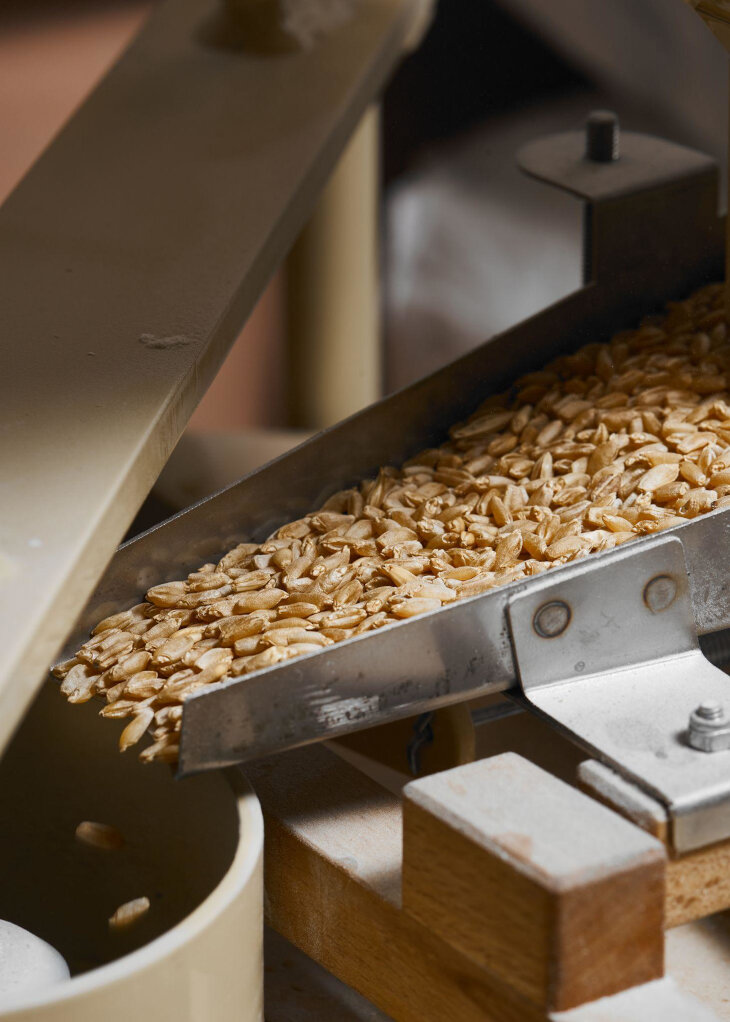
Back in Israel he moved to Kibbutz Einat, north of Tel Aviv and set up a completely revamped bakery. Ben Yehuda now mills his own flour (giving him complete freedom to work with the raw materials of his choice), and along with a milling machine that separates the bran from the grain without crushing either, has invested in a hand-operated Spanish stone oven that rotates the loaves during baking.
His other fortuitous discovery was the Eretz Hita (Land of Wheat) project just getting off the ground at the Volcani Center, Israel’s leading agricultural research institute. Ben Yehuda started to collaborate with the project and with a farmer in the North planted seeds of indigenous, ancient wheat strains.
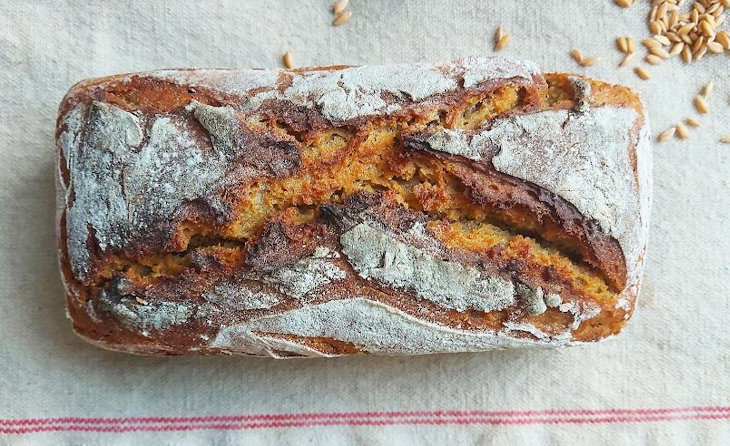
Surprisingly, Emmer wheat was a big disappointment with no interesting flavors, but Einkorn was a “revolution of flavors that hits you with each bite.” This strain of wheat also has the advantage of being low gluten and high in minerals and vitamins. One of his most popular loaves is a country styled bread which mixes 30 percent Einkorn flour with spelt and rye.
The few hundred loaves he bakes a day are supplied to restaurants and delis in Tel Aviv and to artisanal bread aficionados who come directly to the bakery. He is also encouraged by the feedback by many younger bakers who want to learn about and use flour made from heirloom grains, something that has been around in America and Europe for at least a decade. “It feels like an ongoing conversation in which I know I have something to say through my bread,” says the baker who is certainly doing his great-great grandfather proud.





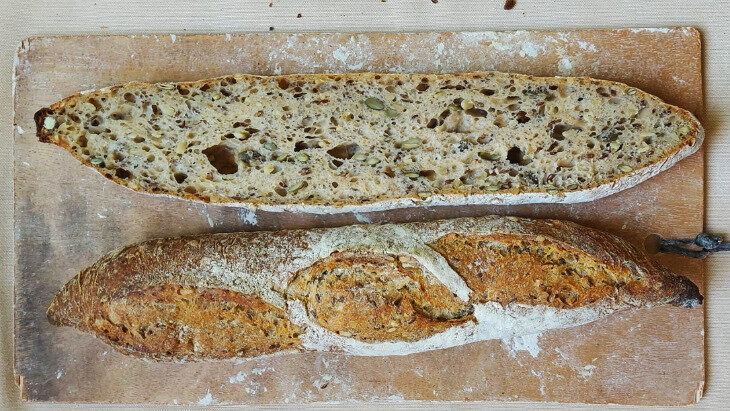


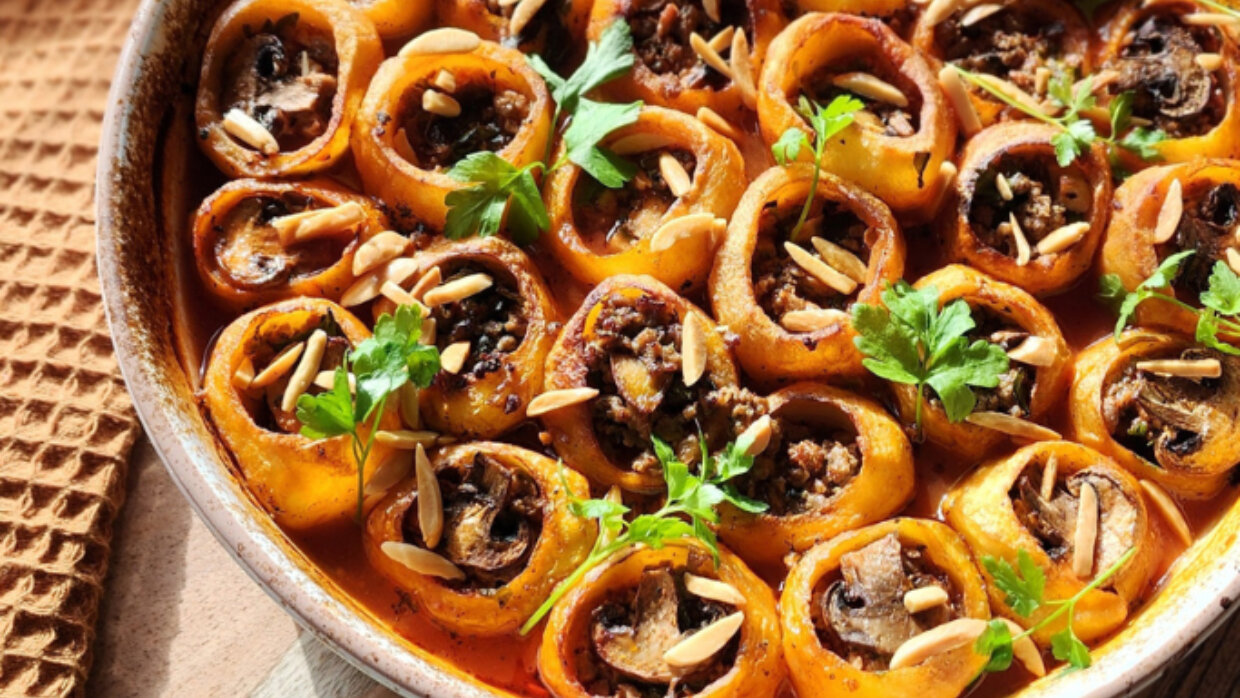
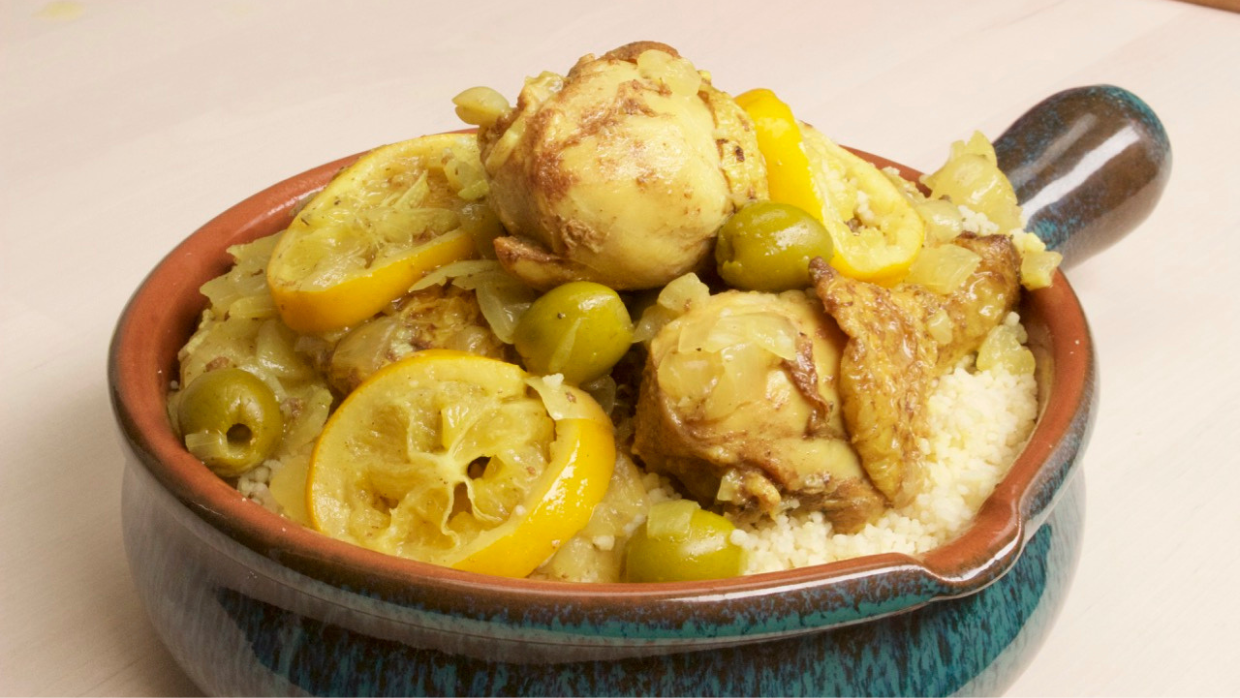
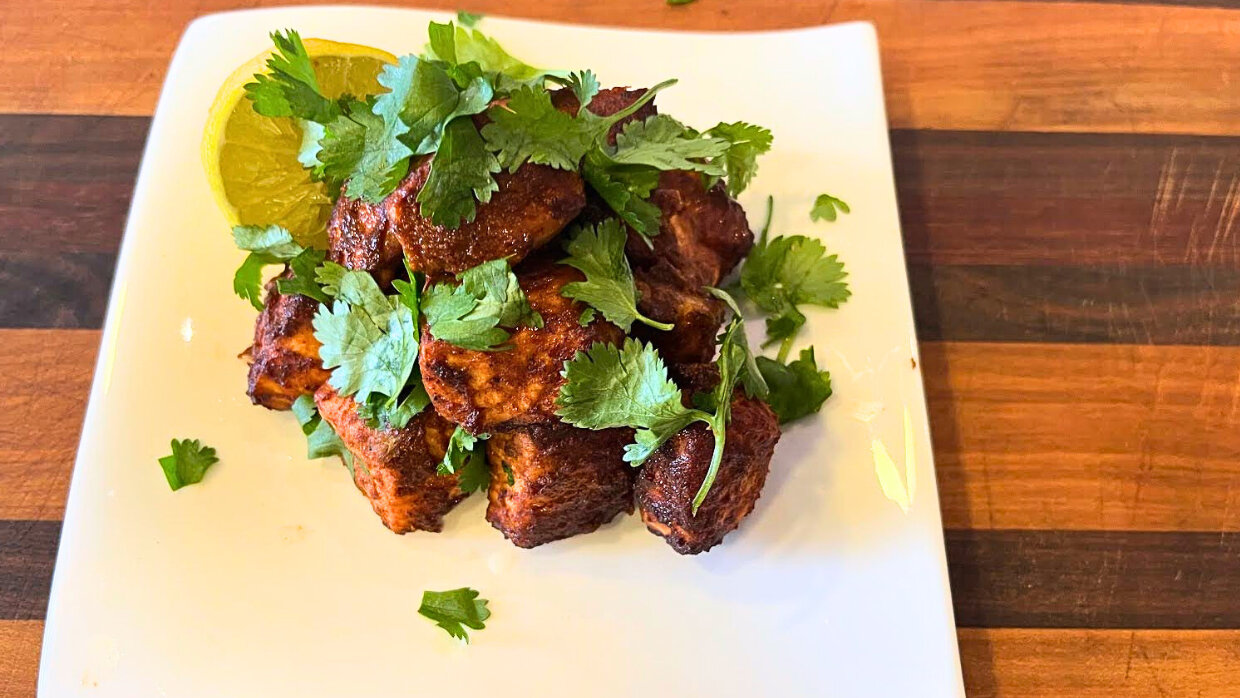

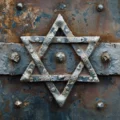
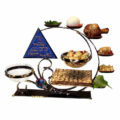


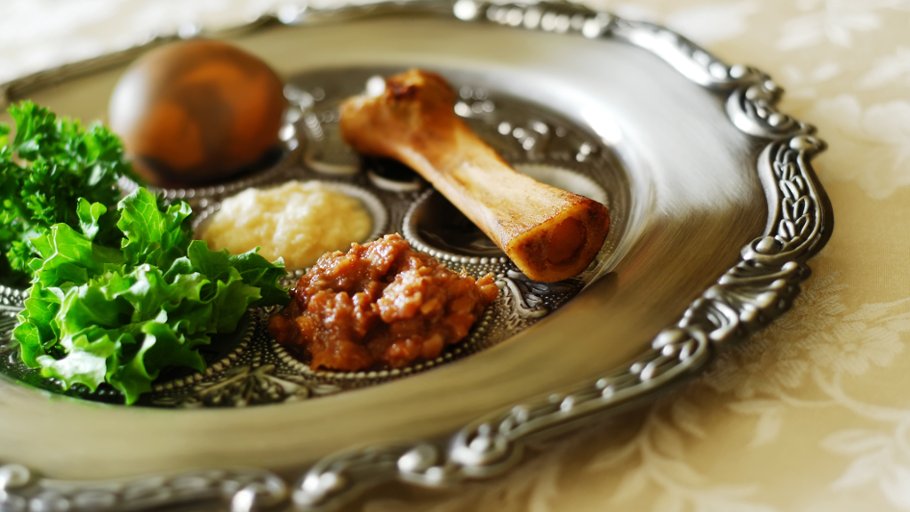

would love if I could receive a good whole wheat bread including other flours such as Kamut. If someone can share a recipe it would be appreciated. Thank you
Wonderful story, love it! Due to food sensitivities (especially wheat) during my daughter's toddler years I tried Einkorn and Emmer. I agree, Emmer was a disappointment in taste for us as well. Another ancient grain is Kamut that worked very well and has a pleasant nutty flavor. Einkorn and Emmer can be purchased at Vitacost.
Is there a bread baking book from the bakery somewhere available?
I looked for einkorn flour online with a hechsher and Jovial Foods sells it with an OK hechsher. It's available, among other places, on Amazon, including local Whole Foods markets, and possibly some Giant stores.
But Einkorn is prohibitively expensive here in the States and regular stores like Wal-Mart don't carry it.
You have to buy it at Wal-Mart online. You pay $22.99 for two 2 lb bags for the cheapest.